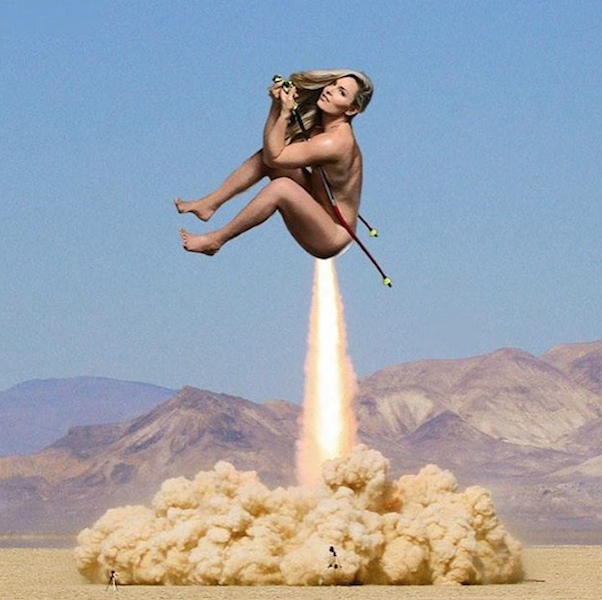Let's meander down memory lane. All the way to Sochi!
Do you remember two years back when the world’s finest snow athletes traveled all the way to Sochi, Russia? I did because I was there, covering the Games for Esquire. Let’s re-live!
SOCHI, Russia — I checked into my dacha late last night. It hugs the Caucasus Mountains a mere five kilometers from Polyana Krasnaya or “The Mountain Cluster” of these Olympic Games. And I realized, as I set my suitcase on its marble floor, that any journalist complaints about Sochi must be coming from the unimaginative or those who married poorly.
My dacha has a baby grand piano. It has a swimming pool heated to a perfect 80 degrees. It has a Russian masseuse, who gives a “Russian Strength Massage,” on call 24 hours a day, and it has a refrigerator stocked with ice-cold beer. The reason it is so well-appointed is because the hotel grounds, upon which it sits, are owned by Gazprom, one of the world’s largest companies.
Gazprom is based in Moscow and accounts for 17% of all natural gas production. They pumped 32 million tons of crude oil last year. They own airlines, media, banks, the Pik Hotel and my dacha. Its valuation hovers around $100 billion and its taste in design is luxurious. My dacha’s whirlpool bathtub has gold fixtures set against forest green tile.
Yet I would not be here had I not married my important and successful sports agent wife. She has an eye for talent and signed Russian-born snowboarder, and potential gold medalist, Iouri Podlatchikov. Even though he rides for the Swiss team, he is a Russian darling. He is the reason I am mixing a perfect Stolichnaya martini on a mahogany bar.
And even though Gazprom is one of the world’s largest companies, it is in a bit of hot water due to corruption. The Moscow Times recently reported that, “In their private reports, investment bankers write cautiously that they consider 70 percent of Gazprom’s capital investment ‘value destruction,’ which is their euphemism for corruption and waste.” The Economist reported last March that, “(Gazprom’s) costs are startlingly high. It treats its executives generously: a 2008 tender, for example, included a solarium and a special bath for horses. It buys supplies in an idiosyncratic fashion, too.” Independent think tanks and evaluators consider that Gazprom loses some 50 billion dollars a year to corruption and waste.
Corruption is bad, I know, I know, and waste is a shame, I know, I know. The journalists love to crow about the $50 billion spent on these Games and the yellow water in their sinks and the unfinished floors in their rooms. But I drove on that $7 billion road late night and it was as smooth as butter. So smooth, in fact, that my jet lagged one-year old daughter slept like a sweet angel. I saw the mountain town, built just three years ago, and the snowboard course and the ski jumping venue today and it all looks like a futuristic alpine dream. I watched Torah Bright (one of my wife’s other clients and the most beautiful competitor) in women’s slope style while sitting in the most comfortable outdoor arena, listening to a bagpipe band play AC/DC’s Thunderstruck, and felt happy.
At the end of the day, who is to say what is waste and what is necessary? The United States government spent $400,000 last year studying duck penises and has over $17 trillion in debt. And I just bought a pair of Balmain jeans. Right now I am getting ready to chase my Stolichnaya martini with a chilled bottle of Laurent-Perrier champagne that has been chilling in a sterling silver bucket all afternoon. It will be delicious.




